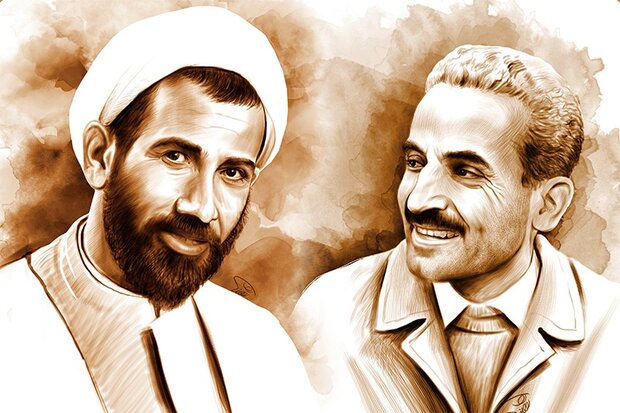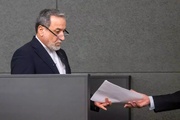August 29 is the National Day of Fight against Terrorism in Iran. On this day in 1981, the Mojahedin-e-Khalq Organization (AKA: MKO, MEK, PMOI) exploded the office of the Prime Minister of Iran, and martyred President Rajai and Primer Bahonar and several other officials.
In the Islamic Republic of Iran, the week before the martyrdom anniversary is commemorated as 'Government Week' to honor the nation's significant political leaders.
On August 30, 1981, a deadly explosion occurred when a victim opened a briefcase filled with explosives brought by Masoud Keshmiri, an agent of the Mojahedin-e Khalq (MKO) terror group.
The attack happened in the afternoon at the Iranian Prime Minister's office on Pasteur Street during an extraordinary meeting attended by President Rajai, Prime Minister Bahonar, and various military and security officials.
The assailant, posing as a security official, served tea to the attendees and placed the bomb-laden briefcase under the table. Subsequent investigations revealed that the briefcase contained over one kilogram of TNT, similar to the Hafte Tir bombing two months prior. The details of both attacks were only uncovered afterward, making it impossible to implement preventative security measures.
After placing the bomb, the infiltrator spoke briefly with Khosrow Tehrani, the head of the intelligence unit, then left the meeting, claiming an urgent matter, and met accomplices at Pasteur Square who helped him escape.
Witnesses reported that the bomb detonated when a victim opened the briefcase, destroying the first and second floors of the building. The explosion killed eight people and injured 23 others, who were rushed to hospitals. Due to severe burns, Bahonar and Rajai were identified later through dental records.

Who were Bahonar and Rajai?
The two most prominent victims of the terrorist attack were Mohammad Ali Rajai, the President of Iran, and Mohammad-Javad Bahonar, the Prime Minister of Iran.
Rajai, a graduate of Tarbiat Moallem University and a teacher of mathematics, was 48 years old when he was martyred. After the victory of the 1979 Islamic Revolution, he was first appointed as the minister of education, serving seven months.
Then, in the mid-1980s, he entered the Iranian Parliament or Majles as a representative of the people of Tehran. He held that position for 15 months.
Rajai was also appointed as the Prime Minister and after the removal of Abolhassan Banisadr from the presidency, he was elected as the second president with over 13 million votes.
Bahonar was a distinguished Islamic theologian educated at Qom Seminary and the University of Tehran, where he received his doctorate. He was 47 years old when he was martyred.
He also served as the Secretary General of the Islamic Republican Party after the martyrdom of Ayatollah Hossein Beheshti, and he was also a member of the Assembly of Experts for Constitution that drafted the new Iranian constitution.
Both Bahonar and Rajai, together with the victims of the earlier Hafte Tir bombing, were buried in the Hafte Tir Mausoleum at the Behesht-e Zahra cemetery in the south of Tehran.
In addition to Bahonar and Rajai, six other people were also martyred in the blast.

Iranian court holds 15th trial session in MKO terrorism case
In early July, the 15th trial session of the hearing on crimes of members of the Mujahedin-e Khalq Organization (MKO) terrorist group was held in Tehran.
The new round was held at the 11th branch of the criminal court of Tehran province in a case that tries 104 natural persons as well as one legal entity in absentia.
Judge Dehqani, who presided over the session, said judicial notices have already been sent out to all defendants of the case under the Islamic penal code of Iran, stressing that the defendants have neither hired a lawyer nor filed a defense with the court.
The MKO has carried out numerous terrorist attacks against Iranian civilians and government officials since the victory of the Islamic Revolution in 1979. Out of the nearly 17,000 Iranians killed in terrorist attacks over the past four decades, about 12,000 have fallen victim to the MKO’s acts of terror.
Reported by Tohid Mahmoudpour


























Your Comment